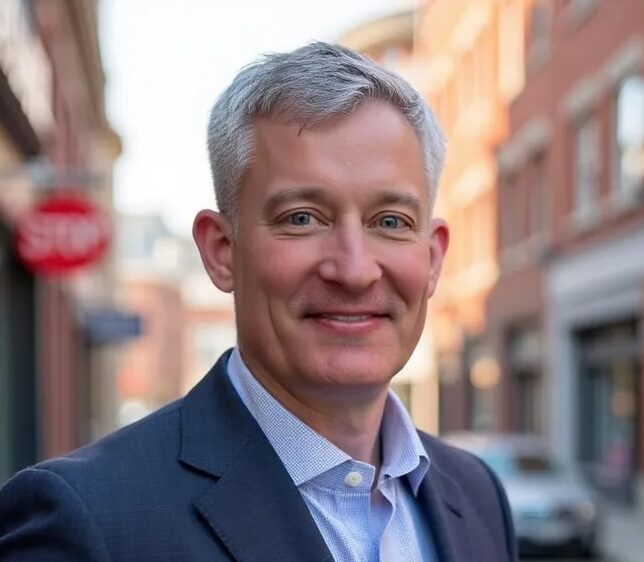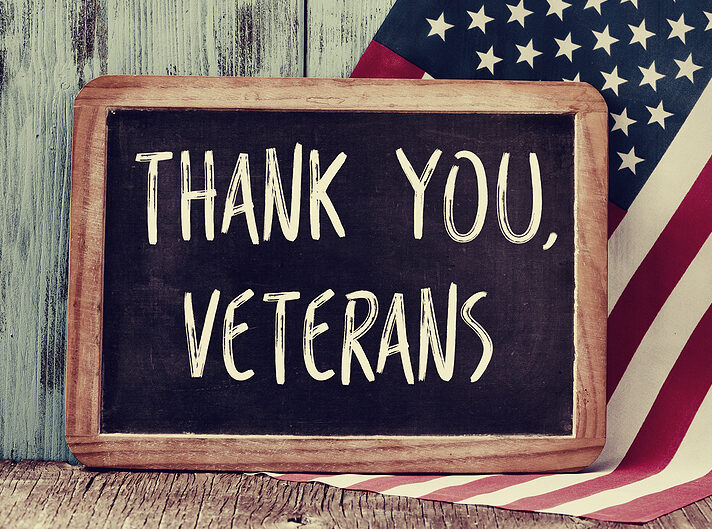While I’ve spent a good portion of my life in uniform, I never truly know how to react when someone thanks me for my service.
Like so many others, joining the military was just a matter of circumstances for me. Graduating high school on a Friday night, I left Monday morning for the Marines, still smelling like the dairy barn where I had been working just a few days earlier. This wouldn’t just be my first time on an airplane; it was my first time leaving my home state of Kentucky.
The military was my ticket out of a life.
After deploying to Bosnia and the Middle East, I decided a few years later to come home to be with my ailing father, an Army veteran who served in Vietnam. He spent several weeks as a POW, only to be spat on by protesters as he returned to Kentucky in his service uniform, chest protruding with ribbons earned through combat valor.
But he never allowed the anger directed at his service or the treatment he received when returning home to overshadow his love for America. Before he passed, many of our final conversations focused on the direction of our country, learning from the past, and the meaning of citizenship.
In recent months, I have found myself returning to my father’s words. As our nation works to heal and find unity in this moment, we must think of ourselves as citizens and begin to serve one another, placing our collective responsibility above individual desires.
After all, service to our country doesn’t end when the uniform comes off. It’s a lifelong calling—one that every American can answer in their own way. One of the most meaningful forms that service can take is philanthropy.
The beauty of philanthropy is that it transcends politics, geography, and background. People from both urban and rural areas, celebrating diverse faiths and representing different ethnicities, can come together to uplift their communities and our country. A farmer in Iowa and a tech executive in Silicon Valley might disagree on many things, but when it comes to supporting wounded warriors, feeding hungry children, or preserving our cherished democratic institutions, they find common ground.
Whether your gifts are large or small, a generous spirit that seeks to serve your fellow Americans is exactly what this country needs in this moment. Subtract philanthropy, and our lives become duller, flatter, darker, unhealthier, and silent.
Every principled donor I have worked with over the years shares something in common with the veterans who have served this great nation: They understand that true citizenship is not passive. It isn’t a status on your passport; it’s a habit of life, one that acts from gratitude rather than entitlement, one that seeks to give more than it takes.
My father understood this. The one percent of those who’ve served in the military understand this. And so do the countless Americans who quietly give, volunteer, and build institutions that preserve our liberties and strengthen our communities.
I believe my father would be proud of the path I’ve chosen—continuing my Navy service while helping others serve through their philanthropy. As a fundraiser and philanthropic advisor for the past 25 years, I have traveled across this great nation, from the boardrooms of Manhattan to the church basements of rural Montana. What I’ve discovered is that the heart of American generosity beats strongest when we understand not just the how of giving but the why as well.
When I work with a veteran in Texas who wants to establish a fund advancing policy reforms, or with a family in Maine looking to honor their grandfather’s legacy through charitable giving, I’m not just processing transactions. I’m helping them translate their values into action for the good of their community.
Sometimes those values are universal, like the desire to relieve the suffering of our less fortunate fellow citizens who may be unhoused or hungry. Those values can also be something about which patriotic Americans can disagree. They can be related to our worldview or our politics. But even when we don’t see eye to eye, citizenship requires that we don’t spit on one another’s philanthropy. Instead, thank one another for their service.


